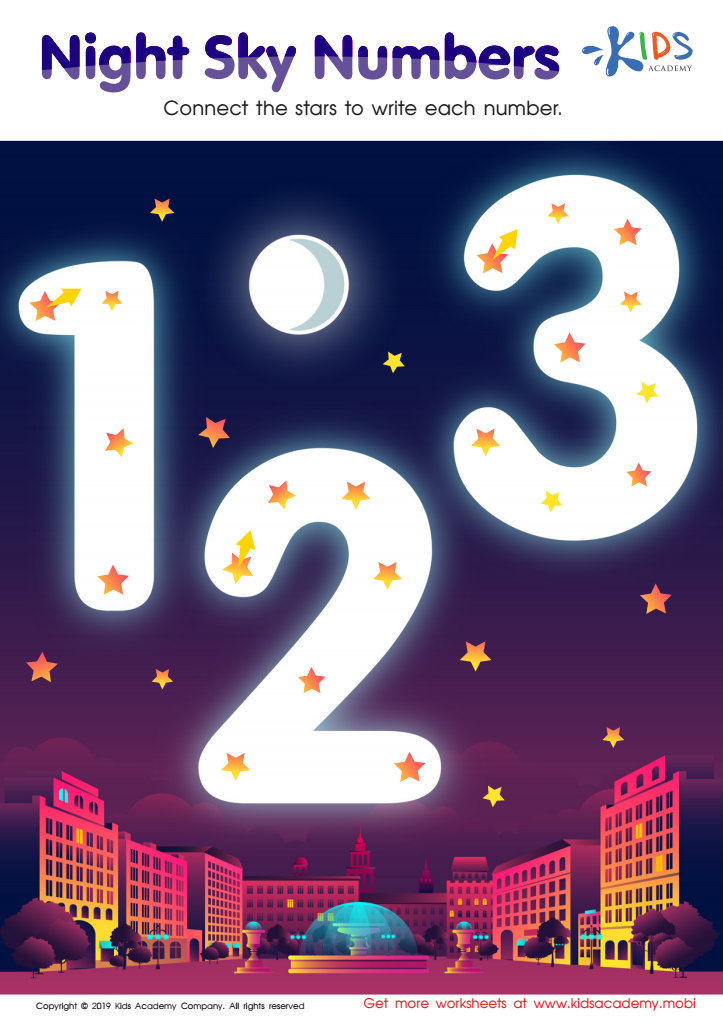Fine Motor Skills Easy Numbers Worksheets for Ages 4-5 - Page 2
26 filtered results
-
From - To


Counting Big City Buildings Worksheet


Night Sky Numbers Worksheet
Fine motor skills are critical in early childhood development, and parents and teachers should focus on enhancing these skills, particularly with activities involving numbers, for children ages 4-5. Fine motor skills involve the coordination of small muscles in the hands and fingers, essential for tasks like writing, buttoning clothes, and using utensils. At this age, children are at a prime stage of developing these skills, which are foundational for their academic and daily life activities.
Introducing numbers into fine motor skill activities adds an educational layer that strengthens both cognitive and motor development. For example, activities such as tracing numbers, manipulating small objects in counting games, and assembling number puzzles help children to develop precision and control. These tasks also reinforce number recognition, counting abilities, and early math skills, which are vital for future academic success.
Moreover, engaging in fine motor activities that incorporate numbers can boost a child's confidence and hand-eye coordination, resulting in better classroom performance and ease in performing everyday tasks. It promotes patience, concentration, and problem-solving skills. Overall, emphasizing fine motor skills with numbers ensures a well-rounded developmental approach, ultimately supporting children's growth into capable and competent learners.
 Assign to My Students
Assign to My Students





%20(1).jpg)










